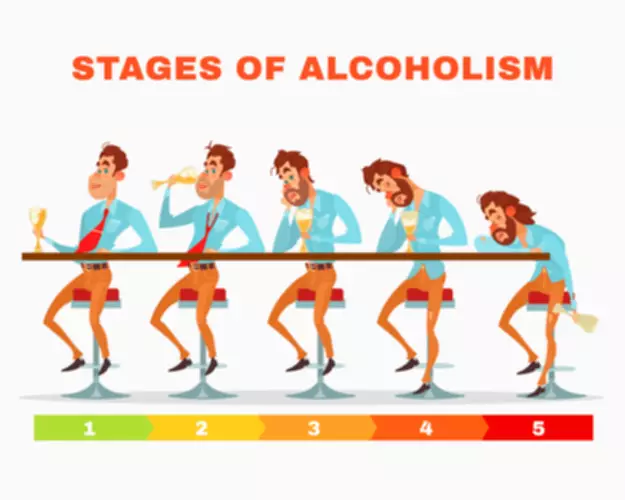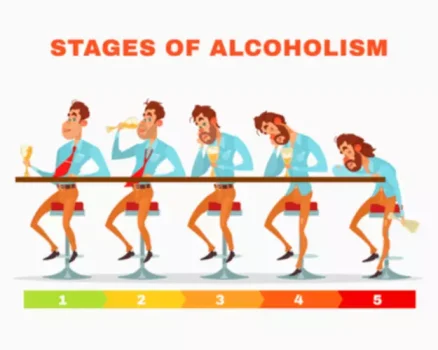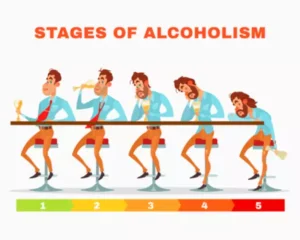
Wine makers must carefully balance the use of sulfates with the acidity levels to create a pleasant flavor profile without compromising its shelf life. With the right balance, a winemaker can create a delicious and complex flavor profile that will surprise and delight even the most discriminating taster. Isinglass is a protein made from collagen and taken from the swim bladders of fish. Because this protein is taken directly from fish (notably from the Beluga sturgeon), it is not able to be consumed by strict vegans and vegetarians.
Does Red Wine Make Your Nose Stuffy?
People of Korean, Japanese, or Chinese descent are more prone to this genetic defect than people of other ethnicities. Quercetin is a plant pigment that has been shown to cause sneezing in some people. COVID-19 appears to be contagious for a longer time and to spread more quickly what is alcoholism than the flu.

Can You Be Allergic to Wine?
The bad news is that you can’t really do much about it, or that unwelcome nasal congestion that comes along with it, aside from just not drinking alcohol. Alcohol intolerance is a temporary, but pretty uncomfortable, reaction to alcohol — with nasal congestion and flushed skin being the two most common side effects. It happens if your ALDH2 enzymes (remember those?) aren’t particularly effective at their job, or if your body just doesn’t make enough ALDH2 enzyme in the first place. In either case, the result is less acetaldehyde being broken down into acetate. People with an intolerance to a food or beverage may experience symptoms that are uncomfortable but not life-threatening. Those who have an allergy, however, could have serious reactions if they consume something they are allergic to.

Does Alcohol Cause Nasal Congestion?

If flushing is the only symptom you notice after drinking wine or any other type of alcohol, then you’re more than likely only reacting to the traces of ethanol in the alcohol. In this article, we’ll explore why drinking alcohol commonly leads to a stuffed up nose for so many people. More importantly, you’ll discover actionable ways to stop alcohol from inflaming nasal passages so you can avoid the dreaded stuffy nose hangover. Whether you only have the occasional glass of wine at dinner or frequently enjoy late nights out, you’re sure to learn valuable tips to nip post-drinking nasal congestion in the bud. Red wine is more likely to have lipid transfer proteins that cause notable allergic reactions than white wine is.
Other Effects
- Chitosan can be especially problematic for wine lovers who are allergic to shellfish.
- In addition to filtration, the use of fresh fruits and vegetables in cocktails can pose a risk for those with oral allergy syndrome (OAS).
- Alcohol and food allergies can cause serious health problems, yet many people do not take the necessary precautions to prevent them.
- With the right balance, a winemaker can create a delicious and complex flavor profile that will surprise and delight even the most discriminating taster.
- You can also try placing a warm, damp cloth over your face to help open up your nasal passages.
If you have ever felt nauseous or had a headache after drinking wine, there is a chance that you are sensitive to sulfites. It is essential to talk with your doctor if you think you may be sulfite sensitive. Alcohol can worsen your difficulty breathing through your nose, so it’s important to be mindful of how much you consume. If drinking alcohol is unavoidable, try to limit your intake of low-alcohol beverages such as beer or wine.

Why Do I Sneeze When I Drink Alcohol?
Sulfites are produced naturally in wine during the fermentation process by the yeast. Some people are allergic to sulfites and may experience symptoms such as hives, wheezing, and difficulty breathing after drinking wine that contains them. If you have an alcohol intolerance, you may experience skin flushing and a stuffy nose after drinking alcohol. Alcohol usually contains sulfite compounds, and it is important to be aware of your sensitivity.
There are several ways to manage wine allergies, including does wine make you sneeze avoiding wines that contain the allergens, taking medications to reduce symptoms, and receiving allergy shots. With proper management, people with wine allergies can still enjoy their favorite drinks. For instance, beer and wine contain high levels of histamine, which can also contribute to a runny nose or nasal congestion.
Additionally, many people have an intolerance to sulfites, which are preservatives often used in red wines. Consuming too much sulfite can lead to headaches and breathing difficulties. This type of allergy occurs when an individual cannot break down sulfites, which are a byproduct of fermentation and appear in wine and other alcoholic beverages.

Can You Be Allergic To Some Wine And Not Others?
It is important to be aware of the potential allergens present in wine so that those who suffer from allergies can choose wines that are safe for them to drink. Try switching wines to see if there’s one you enjoy that you don’t have a reaction to. There are also special “green wines” that are made without artificial additives or pesticides. Gelatin is an animal protein used in red wine as a way to lower extra astringency and tannins.
In some people, intolerance or allergy to alcohol can also result in uncomfortable or even dangerous symptoms. This article discusses allergies to alcohol, symptoms, triggers, tests, and treatment options. You may also develop itchy eyes, scratchy throat, sneezing and skin flushing. Common digestive symptoms may include bloating, stomach pain, cramping, diarrhea, vomiting and nausea. Skin reactions include hives, skin redness, inflammation and eczema in some cases.
